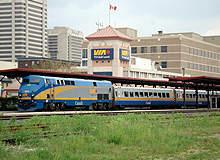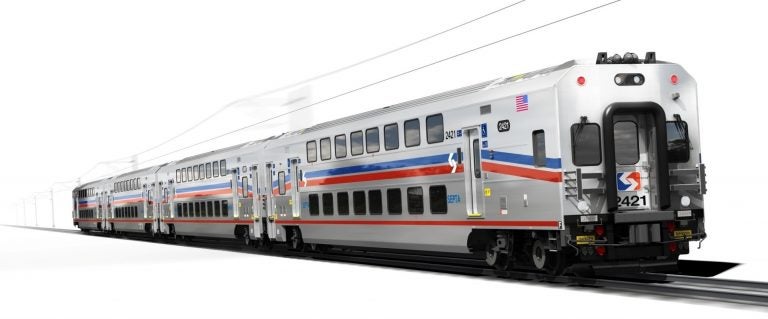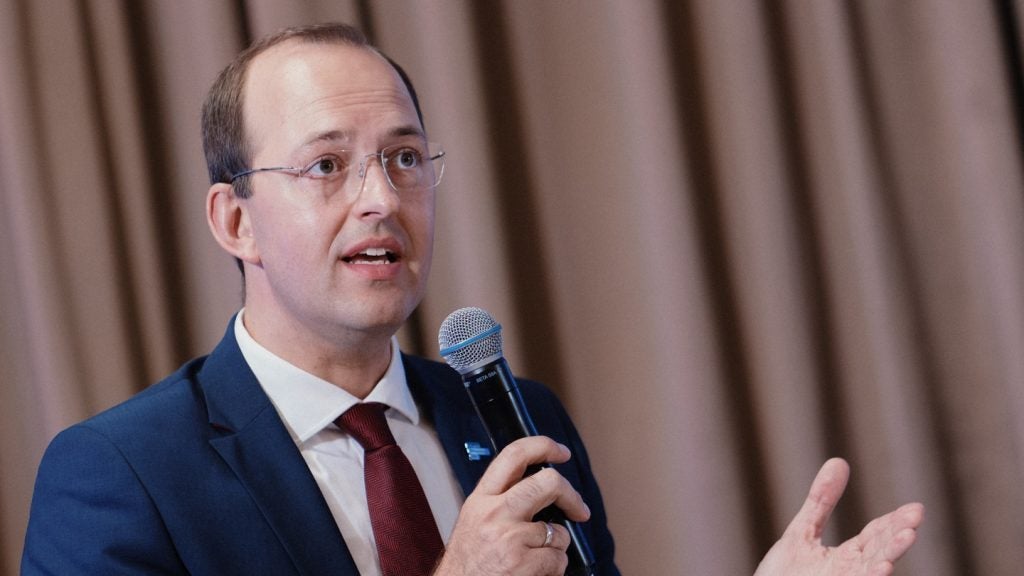
Outsourcing has always been a rather dirty word in business, a word associated with local redundancies and the sacrifice of quality at the altar of financial savings. For some, a move towards outsourcing is also considered a sign of weakness.
For rail companies working in a technically complex sector, however, outsourcing certain operations to an external specialist can be a true blessing, allowing operators to concentrate on maximising strengths without having to obsess over little details.
This is certainly the view of François Prénovost, executive vice-president at RailTerm, an outsourced rail specialist operating in the US and Canada. Prénovost follows the motto that "it’s better to be outstanding at something than just good at everything", and believes that outsourcing is a practical way to gain instant expertise in areas outside a company’s core competency.
It’s fairly common for rail companies to outsource IT and data hosting to specialised companies. In summer 2007, Network Rail in the UK signed extensive outsourcing agreements, contracting a large portion of its technology infrastructure to two dedicated suppliers in an effort to improve efficiency and cut costs. But as the rail outsourcing market matures, increasingly important operations are being entrusted to contracted partners.
Expressway
See Also:
RailTerm was formed in 1996 by a transportation real estate group that wanted to bid on an outsourced pilot project for Canadian Pacific Railway (CPR). Expressway, as the project was called, established a specialised intermodal freight service that transports medium-haul cargo by combining trucks and rail. The service required intermodal terminals where freight is transferred between road and rail vehicles.
How well do you really know your competitors?
Access the most comprehensive Company Profiles on the market, powered by GlobalData. Save hours of research. Gain competitive edge.

Thank you!
Your download email will arrive shortly
Not ready to buy yet? Download a free sample
We are confident about the unique quality of our Company Profiles. However, we want you to make the most beneficial decision for your business, so we offer a free sample that you can download by submitting the below form
By GlobalDataRailTerm won the contract to become an Expressway terminal manager in 1996 and has operated three of Expressway’s intermodal terminals (West Toronto, East Toronto and Montreal) ever since. That RailTerm has maintained such a long-term relationship with CPR is testament to the rail operator’s satisfaction with RailTerm’s service as an outsourced subcontractor.
For these terminals to run smoothly, seamless coordination between RailTerm, CPR and road freight operators is required. It’s such a complex operation that many companies would shudder at the thought of outsourcing all day-to-day management.
Prénovost elaborates on the intricacy of intermodal terminal management. "The coordination effort involves many different departments within our customer’s organisation," he says. "We need to make sure that [CPR’s] customer service makes the trailers available for loading, its mechanical service keeps the railcars in order and ready to go, as well as ensuring that train crews have a train to leave with on schedule. Our job is to manage the yard inventory and the loading and unloading in a manner that allows the service to be presented as a "just in time" operation."
Outsourced dispatch services and dark territory control
RailTerm also provides partners with outsourced rail traffic control (RTC) dispatching. Aside from VIA Rail Canada, a national service with trains travelling at 100mph, all of RailTerm’s clients are regional railways that rely on dark territory control rather than using a centralised traffic control system (CTC).
Dark territory forgoes the fail-safe safety mechanisms of CTC, relying instead on a rail traffic controller managing the territory with software. It’s another safety-critical area in which it’s surprising to see operators handing control to an outsourcing partner.
Nevertheless, RailTerm manages RTC operations for more than 20 rail lines, covering 4,300 miles of track, across Canada and the US. The secret to keeping satisfied dispatching clients, according to Prénovost, is building flexibility into the core of RTC operations: "Railroads don’t all share the same rule sets," he says. "Even the ones that do may have different ‘special instructions’. Our [RTC] software architecture is such that modifications to rules or territory configuration can be done in a couple of hours rather than days or weeks. This is because features are encapsulated in databases rather than in line code."
Gaining and maintaining outsourcing relationships
Even with rail outsourcing gaining credibility as an option for operators, trust can still be an issue for operators considering making the leap. Prénovost admits that RailTerm’s early relationship with clients was arduous, as "railroads were not used to trusting strangers with managing some of their essential activities". Before an outsourcing specialist can build up a positive track record, the onus remains on the sub-contractor to prove its reliability.
Most companies are well aware of the potential pitfalls of outsourcing, from data protection and security issues to reduced flexibility and organisational disarray. Prénovost adds that some companies fear their unique corporate culture will be compromised by the integration of an unfamiliar new organisation.
Prénovost maintains that one of the best ways to establish a successful outsourcing partnership is to make the process as unobtrusive as possible for the client. "Maintenance shouldn’t be anything more than a faint background noise," he asserts. "We make sure we never go to our clients with a problem without solutions to propose… Everybody makes mistakes – you are judged on how promptly and cleverly you fix them and how you put in place the right mechanism to prevent reoccurrence. Your customer needs to know their back is covered. Our constant challenge lies in quality control."
Outsourcing in the rail industry, as in any other, is a matter of trust. As economic conditions continue to fluctuate and public funding gets slashed, outsourcing could become a tantalising financial prospect.
But for large-scale outsourcing to see truly widespread adoption, there needs to be consensus among companies that there might be strategic as well as economic reasons for choosing a specialist subcontractor. As Prénovost puts it: "The market is adjusting to the idea there are people out there who will do a better job in areas of specialisation than they will: they understand they need to focus on their strategic core activities and partner up with professionals for the rest."






